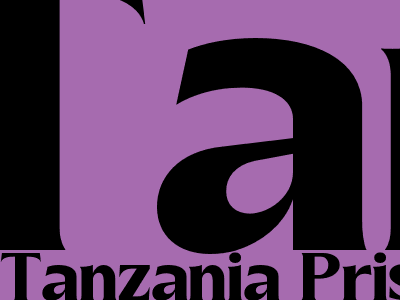Tanzania Prisons: A Comprehensive Overview and Analysis
1. Introduction: Understanding Tanzania's Prison System
Tanzania's prison system plays a crucial role in the country's criminal justice system, serving as a place of confinement for individuals convicted of criminal offenses. The system comprises various types of prisons, from maximum-security facilities to open prisons, each catering to specific security levels and rehabilitation needs.
The Tanzania Prisons Service (TPS), a department under the Ministry of Home Affairs, is responsible for managing and administering the prison system. TPS is entrusted with ensuring the safe custody, rehabilitation, and reintegration of inmates into society, striving to maintain a balance between punishment and rehabilitation.
2. Infrastructure and Conditions in Tanzania's Prisons
Tanzania's prisons vary significantly in terms of infrastructure and living conditions. Some prisons, particularly older facilities, face challenges with overcrowding, inadequate sanitation, and limited access to healthcare. However, the government has invested in improving prison conditions, constructing new prisons and renovating existing ones to meet international standards.
Newer prisons in Tanzania often feature modern facilities, including proper ventilation, running water, and improved sanitation systems. Inmates have access to basic amenities such as bedding, clothing, and toiletries. Efforts are also being made to provide educational and vocational training programs within prisons, equipping inmates with skills for reintegration into society.
3. Inmate Population and Rehabilitation Programs
The inmate population in Tanzania's prisons has been steadily rising in recent years, reflecting an increase in crime rates and stricter enforcement of laws. Overcrowding remains a challenge, contributing to strained resources and limited access to rehabilitation programs.
Despite these challenges, Tanzania's prison system recognizes the importance of rehabilitation and reintegration. Several initiatives are in place to provide inmates with educational opportunities, vocational training, and counseling services. These programs aim to equip inmates with the skills and mindset necessary for successful reintegration into society upon release.
4. Challenges and Opportunities in Tanzania's Prison System
Tanzania's prison system faces numerous challenges, including overcrowding, limited resources, and the need for further rehabilitation programs. However, there are also opportunities for improvement.
Investing in prison infrastructure and expanding rehabilitation programs can significantly enhance the effectiveness of the prison system. Collaboration with non-governmental organizations and international partners can provide additional support for inmates and contribute to their successful reintegration into society. By addressing these challenges and leveraging opportunities, Tanzania can strengthen its prison system, uphold human rights, and promote a safer and more just society.
5. Conclusion: The Future of Tanzania's Prison System
Tanzania's prison system is undergoing a period of transformation, with a focus on improving conditions, enhancing rehabilitation programs, and reducing overcrowding. The government's commitment to these reforms is a positive step towards ensuring a more humane and effective prison system.
By investing in infrastructure, expanding rehabilitation opportunities, and addressing challenges, Tanzania can create a prison system that meets international standards, protects human rights, and contributes to a safer and more just society.

Komentar